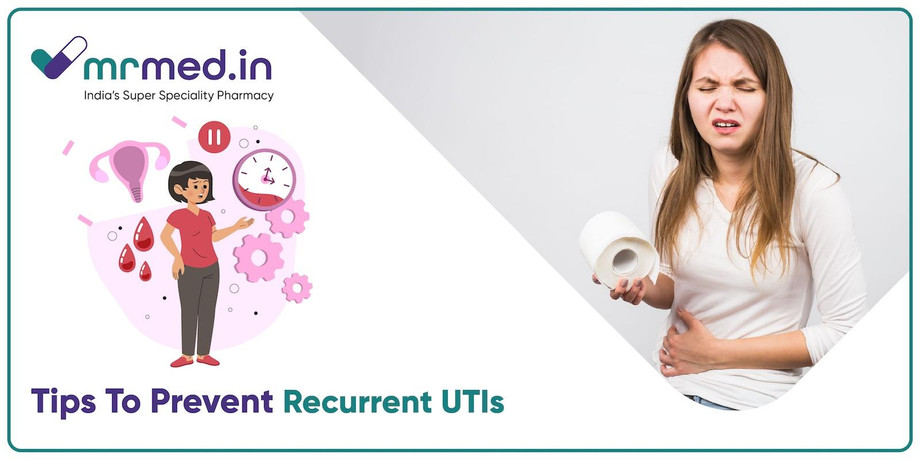Urinary tract infections (UTIs) can feel like an endless cycle of discomfort, striking when you least expect it. If you’re tired of dealing with the pain and hassle of frequent UTIs, you’re not alone. The good news? You don’t have to live with them forever! With the right solutions, you can break free from the cycle, prevent those pesky infections, and handle them like a pro when they occur.
In this article, we’ll share game-changing tips to keep UTIs at bay, remedies that work when one sneaks up on you, and everything you need to know to take control of your urinary health.
What Causes Recurrent UTIs?
They are caused by bacterial infections that affect the urinary system. The most common type is a bladder infection (cystitis), which occurs when bacteria enter the urinary tract through the urethra. Some people are more prone to UTIs due to various factors, including sexual activity, poor hygiene, or structural issues with the urinary tract.
Recurrent UTIs are typically defined as two or more infections in six months or three or more in a year. Factors such as a weakened immune system, dehydration, or the use of certain types of birth control can increase the likelihood of developing repeated infections.
How Can I Prevent UTIs from Coming Back?
Preventing recurrent UTIs requires a combination of lifestyle changes, hygiene practices, and understanding what triggers these infections. Below are some steps you can take to reduce your risk.
1. Drinking water
Yes! Keeping yourself well-hydrated is one of the easiest and most powerful ways to ward off UTIs. Drinking ample water helps flush harmful bacteria from your urinary tract before they get a chance to cause an infection. Make it a habit to drink at least eight glasses of water daily, especially if you’re prone to UTIs. Proper hydration supports your bladder’s function and prevents bacteria from lingering in your urinary system.
2. Urinating After Sex
Absolutely! It’s highly recommended to urinate after sexual intercourse. This helps wash away any bacteria that may have been introduced during sex. If you don’t, the bacteria may travel into your urinary tract, increasing the chances of an infection. Also, wipe from front to back after using the washroom to minimise the risk of bacteria spreading from the anus to the urethra.
3. Hygiene
Good hygiene is a crucial part of UTI prevention. Always clean the genital area thoroughly, but be gentle. Do not use harsh soaps or feminine hygiene products that can irritate the area. Opt for unscented soaps, and make sure to dry the area well after cleaning. This reduces the chances of bacteria sticking to the skin and entering the urinary tract.
4. Drink cranberry juice
It has long been believed to help prevent UTIs, and there’s some evidence to back it up. It contains compounds that prevent the attaching of bacteria to the inner lining of urinary tract. Drinking unsweetened cranberry juice regularly can be part of your preventive strategy, though it's not a replacement for other preventive measures like hydration and hygiene.
What Are Some Remedies for Urinary Tract Infections?
Even with the best prevention strategies, UTIs can still happen. When they do, it’s important to manage them properly to avoid complications. Here are some remedies for urinary tract infections:
-
Hydrate: Just as staying hydrated helps prevent UTIs, drinking water when you have one can help flush out bacteria more quickly.
-
Over-the-counter Pain Relief: If you’re experiencing pain or burning while urinating, over-the-counter medications like phenazopyridine can help soothe the discomfort. Always follow the dosage instructions.
-
Antibiotics: UTIs are typically treated with antibiotics, but in some cases, bacterial infections may become resistant. Always complete your prescribed course of antibiotics, even if you start feeling better before finishing. For severe cases, antibiotics like Meronem injection containing Meropenem (often used in hospitals) may be prescribed to target tough bacterial infections.
How Can I Manage UTIs Without Antibiotics?
Although antibiotics are commonly used to treat UTIs, some individuals opt for natural approaches. Here are a few alternatives:
-
D-Mannose: This supplement can reduce the likelihood of bacteria attaching to the urinary tract, lowering the risk of infection.
-
Probiotics: Including probiotics in your diet supports a balanced and healthy bacterial environment in the urinary system, which can help prevent UTIs.
-
Vitamin C: Boosting your vitamin C intake can make the urine more acidic, creating an environment that’s less favourable for bacteria.
When Should I See a Doctor for a UTI?
If you have symptoms of a UTI, it’s important to get treated quickly. However, if you have recurrent UTIs or your symptoms persist despite treatment, you should consult a doctor to rule out underlying causes.
Your doctor may recommend a more comprehensive treatment plan, which could include long-term, low-dose antibiotics to prevent further infections. Additionally, a doctor may perform tests to determine if there’s a structural issue contributing to your recurrent UTIs.
Final Thoughts
Recurrent UTIs can be managed and prevented with the right strategies. Stay hydrated, maintain proper hygiene, and seek timely treatment if an infection occurs. For frequent UTIs, consult a healthcare provider for long-term solutions. Take charge of your health and keep your urinary tract functioning at its best!

